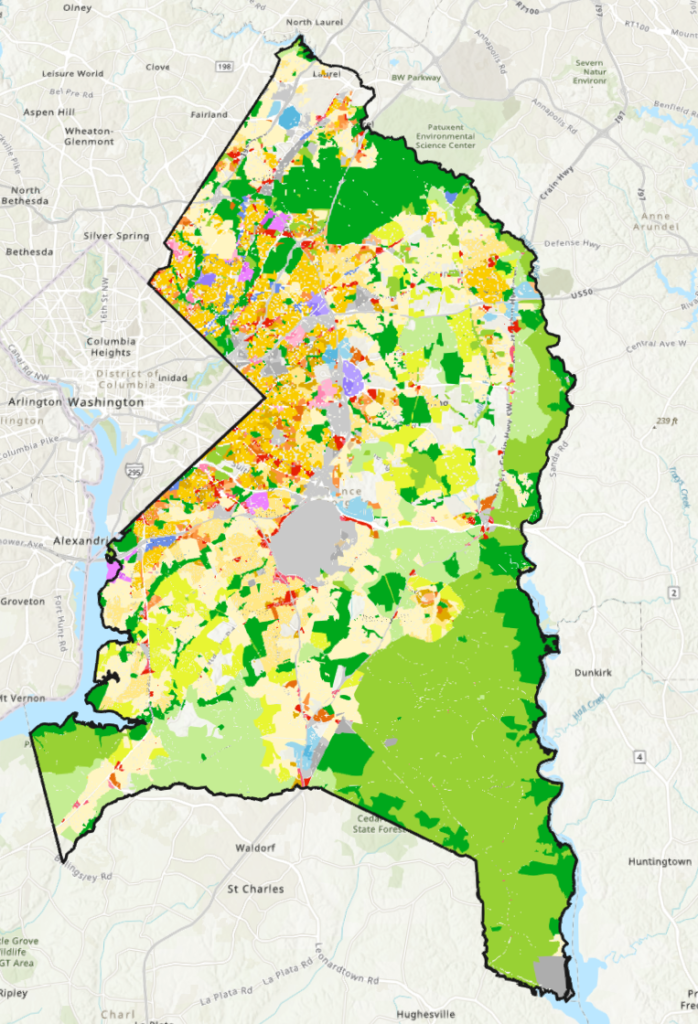What Are Urban Farms Allowed to Do?
The District is proud to say that Prince George’s County is urban farm-friendly and allowed by right in all zones! Use the 'Land Use Look Up tool' and search "urban agriculture." You can grow in the ground, raised-beds, and/or indoors. If you have the appropriate structures and supports, you can even grow on your roof! There are many agricultural uses allowed on urban farms including beekeeping, cut flower and table crop production, composting, hydroponics, aquaponics, the processing of agricultural products, and even farm fowl and agricultural education.
Please keep in mind that livestock other than poultry/fowl are NOT allowed. We have developed an Urban Farm Fowl FAQ in partnership with the Prince George's Food Equity Council and University of Maryland Extension. Please note that this is a draft document and there may be more to follow since allowing urban poultry is new to Prince George's County and county agencies are still drafting additional guidance and requirements.
In addition, while some accessory structures are permitted, they may require permits. One exciting development in Prince George's County is that most High Tunnel Systems that are purchased and installed through the Natural Resources Conservation Service's financial incentive programs don't need a permit. You will need to sign a Urban Ag High Tunnel System Agreement, however. Here is a link to the Department of Permitting, Inspections and Enforcement's Homeowner's Guide to Permits. For more information on requirements for urban agricultural as a permitted principal use, read Subtitle 27: Zoning Ordinance > PART 27-5 USE REGULATIONS > Sec. 27-5100 Principal Uses > 27-5102. Requirements for Permitted Principal Uses. For information on accessory structures and uses, read Sec. 27-5200 Accessory Uses and Structures > 27-5202. General Standards for All Accessory Uses and Structures.
Where Are Urban Farms Allowed?
Urban Agriculture is allowed in most residential, commercial, and industrial zones. All of this has been made possible by a series of urban farming legislation that the District was proud to work on with the Prince George’s County Council, the Prince George’s County Food Equity Council, the University of Maryland Extension, and ECO City Farms.
“Urban agriculture” is the cultivation of fruits, vegetables, flowers, and ornamental plants, as well as the limited keeping and raising of fowl or bees and similar activities in the urban environment or near residential, commercial, or industrial lands. Urban agriculture includes processing on the site of the farm where the agricultural product is grown or raised in the course of preparing the product for on-site sale, which may cause a change in the natural form or state of the product. This use also includes composting, agricultural education, and incidental sales. Urban agriculture production can occur indoors or outdoors, which may include, but is not limited to the following production methods: in-ground farming, raised-bed farming, hydroponics, controlled environment agriculture, rooftop farming, aquaponics, or edible landscaping. Common accessory structures may include, but are not limited to tool sheds, high tunnels, fencing, composting structures, and water cisterns. The term “urban agriculture” shall not include the keeping of roosters, commercial feeding of garbage or offal to animals, the slaughtering of livestock for marketing, or the disposal of sludge except for the fertilization of crops, horticultural products, or floricultural products in connection with an active agricultural operation or home gardening.”
Contact Us
If you want to know if you can start an urban farm on your property, please contact our Urban Agricultural Conservation Program Manager. We can provide more information on Urban Agriculture Property Tax Credit eligibility.


